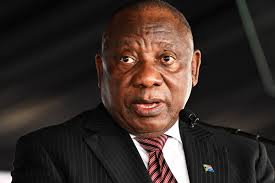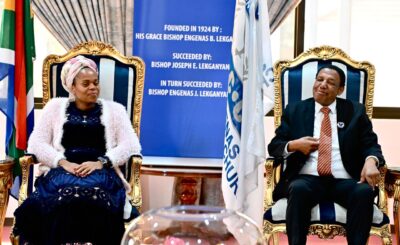Her Excellency Ms Mathu Joyini, Ambassador and Permanent Representative of South Africa to the United Nations,
His Excellency, Mr. Thomas Woodroffe, the United Kingdom Ambassador to the UN Economic and Social Council,
Ms. Amina J. Mohammed, Deputy Secretary-General of the United Nations and Chair of the United Nations Sustainable Development Group, who has joined us virtually,
Dr Bibi Ameenah Firdaus Gurib-Fakim, Former President of Mauritius,
Distinguished guests;
Ladies and gentlemen
It is a great honour and privilege for me to be at this inaugural Science, Technology and Innovation Africa Day, which we hope it will set the standard for a platform for STI’s contribution to Africa’s development. We know that our continent finds itself in a fast and ever-changing global environment. Many of the shared challenges which currently inform the global political economy, have for the first time in history, propelled Africa from the margins of global governance to the very center. From issues of food and nutrition security, energy supply and climate change to health and geo-political conflicts, Africa is increasingly having a seat at the table. Therefore, the world’s problems are Africa’s opportunities. However, developing an African Research and Innovation Agenda is one of the keys that will mitigate the threats posed by an ever-transforming global environment, while unlocking all that our continent can offer its people and the world.
Distinguished guests, scientific knowledge and research are critical drivers for raising the standard of living, human health, economic development, and for environmental sustainability. Despite this, research outputs across the African continent are still rather low as many governments still only marginally fund innovation, research, and development. The African continent represents 20% of the earth’s surface and is home to 1.3 billion people. It boasts 60% of the world’s arable land, 30% of the world’s reserve of minerals and the youngest population of any continent. Despite these riches the continent produces only 3% of global GDP, accounts for less than 3% of international trade and contributes just 2% of the world’s research output, 1.3% of global research spending and produces 0.1% of all patents. This is not surprising as most countries have been unable to meet commitments made through the African Union in 2006, to spend at least 1% of their gross domestic product (GDP) on research and development.
Historically the public sector remains the largest funder of research and development in most African countries. International sources form a substantial proportion of research and development funding in many African countries. Partnerships with international institutions are of utmost importance in achieving any form of development and economic transformation. But the key for African countries to maximise investments leveraged through international collaboration, is the development of an African Research Agenda. This requires African governments to provide an enabling environment by stimulating a greater interface between policy, research, academia and the private sector and industry.
The African Union’s Agenda 2063 and STI Strategy for Africa (STISA2024), clearly outlines the priorities that will unlock innovation led-growth, create good quality and well-paying jobs for the large youth population, while stimulating industrialization and infrastructure development to bridge the rural-urban divide, encourage intra-Africa trade and market sophistication.
We are particularly encouraged and stand ready to support the efforts of the African Union Commission (AUC) in implementing the African Education, Science, Technology and Innovation Fund (AESTIF). AESTIF is an Africa initiated fund led by the African Development Bank (AfDB) and championed by the AUC. The fund will facilitate long-term investment in STI, TVET, STEM, Higher Education, and Research and Development; and Innovation (RDI) in Africa. The goal of the fund is to promote long-term investments in education, science, technology, and innovation to enable African countries to reduce poverty and achieve economic growth, among other things.
In conclusion I would like to thank the United Nations for inviting South Africa to take part in the important discussions that will take place over the next few days. We hope as South Africa, that we can contribute and add value to the wealth of solutions that I believe will emerge from this forum.





